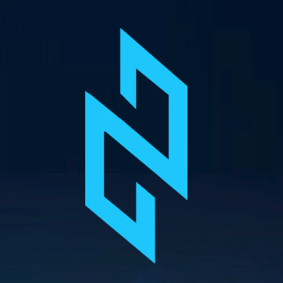While Bitcoin stagnates due to high transaction fees, slow transfer times, and competition, the altcoin market is booming. Coins, like Ripple, Cardano, Verge, and RaiBlocks, have seen astronomical gains in value, yielding percent returns that put high-yielding stocks to shame. It is the gold rush of the 21st century, and as this market burgeons and money multiplies with ease, many have been quick to jam their crypto into the next mooning coin — ’cause FOMO. As a result, according to some, we have an overbought market where investments and claims have gone beyond the true value of the technology. And, more so, we have some who are making grandiose claims for ICOs hoping to cash in on the FOMO, fear of missing out.
But where is the smart money?
I believe that ICOs, initial coin offerings, are the way to go — but not all ICOs are created equal. For excellent return on investment, both financially and for society, with minimal risk, ICOs should have:
- Technologies that have real world application with a working products or prototypes
- Experienced team members
- Professional and informative presentation of their ICOs
- Competitive evaluations with a lot of potential to grow.
These are not all rated equally. The most significant part of their evaluation is the technology and the team. If they have that, then I believe they will succeed. The professional and informative presentation of the ICO is the icing on the cake. If these multimillion and billion dollar companies can’t be professional and transparent, then this raises a red flag for me. Next is evaluation. If they are going to succeed, then I want to know how much I can benefit financially from investing in them.
For January 2018, I’d like to examine three ICOs which have great potential: Nucleus Vision, DADI, MedicalChain, and Neuromation.

Nucleus Vision
Nucleus Vision is a technology that accesses and records your information, similar to a store loyalty card, except it goes far beyond this. Using the customer’s phone (no app required), temperature, pressure, motion, acceleration, sound, and customer data based on store history or from data from the partner network. As a result, stores can cater to each customer in real time, offering them dynamic pricing and specific information based off of their purchase history and more.
I imagine walking into a clothing store and glancing down at my phone to see images of myself wearing the clothes I love only to be greeted by name a few seconds later by a friendly staff member, who I’ve never met, telling me that these are on sale for 10% off.
This technology can go even further.
Imagine how it can be applied to security. A few sensors around your home or business — or at your children’s school — where in real time you can see who is coming toward your property and if they are authorized. Or taking a late night Uber and knowing that the person who is going to be driving you home after you’ve had a few drinks is a law abiding professional without any problematic history.
Or imagine still yet . . .
The list goes on and the fun of imaging these things would never run out. It is certainly a very interesting technology with a lot of real world applications.
Nucleus Vision has already been deployed in ten stores. They have a working product with clients.
Nucleus Vision has an experienced, 40-member team, including Abhishek Pitti, who dropped out of Harvard Business School to launch Nucleus Vision, and Martin Dudley, the Ex-Director of Sales at Levi’s. Avinash Pitti, the CTO, who is an MIT grad with experience in the Banking industry as a manager and who has been with Nucleus Vision since 2014. Nucleus Vision has also partnered with major organizations like Intel and Vodafone.
The website for Nucleus Vision is clear, attractive, and informative. It has a one-pager, a light-paper, but no white paper. Information regarding the tokens, however, is lacking. This also makes it impossible to know their evaluation.
Invest: Yes
Confidence Level: High
Expected Return: Unknown

DADI, Decentralized Architecture for a Democratic Internet, is a global, decentralized cloud service platform offering computing power, database storage, content delivery, and other functionalities. DADI. DADI is open source and offered on GitHub. DADI offers 5 services with another 5 in active development.
So, a decentralized Amazon Web Services, where everything is open source. There are no upfront costs with DADI. No licenses to purchase. Everything is pay-per-use. DADI excels in performance, simplicity, and price. DADI is faster to develop on and with its decentralized nature, it will be faster to relay with its users. DADI was created with users of all experience levels in mind, and have thus made their services simple to use and deploy. Lastly, it touts up to 90% savings compared to some cloud-based providers.
Content management is their primary use case, and they site Empireonline.com as their main example. This website looks good but not amazing. It loads fast and is mobile friendly.
DADI has 18 members on its team with pictures, short bios, and links to both personal sites and social media sites.
Their website looks professional and is full of information. Access to their code is freely available and the terms of their ICO and how it will work are very clear. Half of the total supply of 100 million tokens will be sold during the ICO for $0.50.
There has been, however, an accusation of plagiarism by the founder of the Sonm network, Sergey Ponomarev, and DADI has admitted its mistakes. This kills the project for me.
Invest: No
Confidence Level: Low
Expected Return: Low

MedicalChain is a blockchain for electronic health records. Patients’ medical records are securely stored on the blockchain, eliminating erroneous forked records that often occur during paper transmission. Patients will own their own records and be able to grant read and write access to approved clinicians. Telemedicine, which may be the future of consultations, will permit clinicians — both human and AI — to access the patient’s medical records in real time. Token holders can also sell their own medical data to research institutions, giving themselves MedTokens and more opportunity to access cutting-edge medicine.
MedicalChain is similar to Patientory. But here is how they differ. One way they differ is how clinicians access patient records. With Patientory, a plug-and-play model — thus clinicians have to download and install the software. With MedicalChain, the information can be accessed with a web browser, which is, of course, secured via the blockchain.
I can imagine, in the near future, taking out my phone and pressing a button to instantly connect to an AI physician, who listens to my symptoms, analyzes my medical history, and then prescribes medicine for me which is delivered to my home by drone within an hour.
Discharge Summary, cofounded by Dr. Albeyatti, is one part of MedicalChain that is currently being used in hospitals in the UK and is planning to onboard at least five more hospitals. It was originally designed to solve the document generation problem of patient notes when patients leave the hospital. Ie., making sure that the correct and complete documentation for discharged pations has been recorded.
MedicalChain lists its team and advisors, however, it does not distinguish who is who and what their position is. There are links to LinkedIn where someone can check manually to see what the member’s role is. The link for Mo Tayeb, however, who is one of the co-founders was not working.
MedicalChain’s website is professionally done, attractive, clear, and informative.
Tokens during the ICO are priced at $0.20, with an unknown total supply.
One thing to consider is that their competitor, Patientory. Since Patientory is already established and their main difference is how to access the medical data, how difficult would it be for Patientory to add a second web-based access?
Invest: Yes
Confidence Level: High
Expected Return: Unknown

Neuromation is an AI platform that that creates synthetic data (constructed virtually), labels data, and trains neural networks. Companies want to use neural networks for various reasons. However, the cost of training neural networks is high and sometimes impossible to limited data or resources. Neuromation solves this by creating synthetic data that can be trained and then utilized. The computing power is distributed and decentralized through miners.
For example, a supermarket has thousands of different products on the shelves. To train the AI to recognize all of this information would take a lot of time and effort. Consider a bag of marshmellows that looks different as it gets wrinkled and manipulated. Or a box of cereal that gets twisted around as customers look at it. This data can be recreated virtually and used to train neural networks. Thus saving time, money, and giving more complete data sets.
According to their white paper:
Imagine a place where you can go and easily address all requests to acquire AI capability. A vendor will create the data generator for you, then a group of Neuromation nodes will use the generator to quickly create a massive virtual dataset. You can then select a set of deep learning architectures to train on that data. Then another group of Neuromation nodes will do the training in record time!
Neuromation has already been used in the retail industry to make smart shelving systems. But its applications go beyond that to the automotive industry, biotech, pharma, and more.
They have a competent team of 11 professionals with experience in machine learning, 3D modeling, and more. Pictures, bios, and LinkedIn links are on the website.
The website is attractive, professional, and full of information. Product explanations could be simpler. There are some typos on the website.
60 million of the 100 million total tokens will be sold to the public. During the ICO, the price will be 0.001 ETH.
Invest: Yes
Confidence Level: High
Expected Return: High
Disclaimer: This article is not meant as financial advice. It is a brief, cursory inspection of promising ICOs which you should do your due diligence in investigating should you intend to invest.